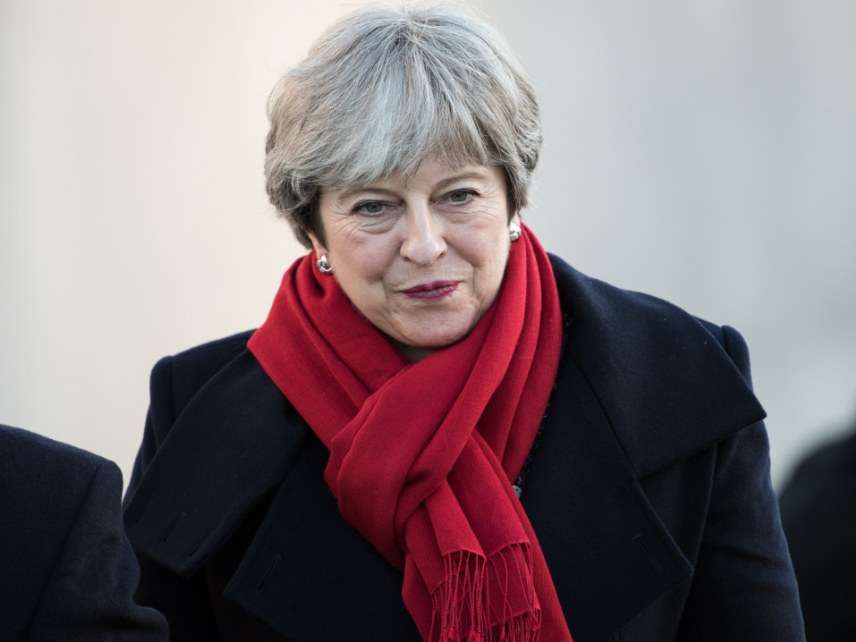Government Is the Cause of—Not the Solution to—Online Censorship
As people worry about the net neutrality vote, public officials threaten our rights to free speech.

While Americans are screaming at the Federal Communications Commission about their fears of private censorship if "net neutrality" goes away, the reality is that governments, in the United States and overseas, are consistently the driving force behind attempts to control what people are allowed to see and read online.
Some supporters of net neutrality have gotten it into their heads that an absence of government-enforced net neutrality will lead private internet providers to institute cost-based access gatekeeping that will serve as a form of censorship.
This belief is misguided (as Andrea O'Sullivan has explained very thoroughly), and yet the amount of public pushback FCC Chairman Ajit Pai is getting over the vote to overturn the "Open Internet Order" is much more furious than the response to lawmakers and politicians who openly demand authority to censor what is and is not permitted to be on the internet.
At the same time Pai and the FCC are making their decision, the Committee on Standards in Public Life in the United Kingdom is encouraging Prime Minister Theresa May to change the law so that it can hold social media companies like Facebook, Twitter, and Google legally liable for content the country deems to be illegal.
Its latest report says:
We understand that they do not consider themselves as publishers, responsible for reviewing and editing everything that others post on their sites. But with developments in this technology, the time has come for the companies to take more responsibility for illegal material that appears on their platforms.
The report notes that the European Union's online commerce regulations treat these tech companies as "hosts," not publishers. The report also notes that Brexit is a thing, so after the United Kingdom leaves the European Union, they're recommending British laws be changed to treat these tech companies more like media outlets.
"What could go wrong?" is baked right into this report, focused as it is on trying to control abusive and harassing speech directed at public officials, particularly members of Parliament.
Some of this communication includes threats of violence. The United Kingdom, however, does not have as broad a view of free speech as the United States and outlaws "hate speech," as well as speech that harasses or causes "distress" to individuals.
Even with the European Union's regulations, other countries aren't much better. Facebook has agreed to hire hundreds more people to respond to demands by the German government to censor and remove content they have declared illegal. Otherwise they could face huge fines.
Demands by governments to censor will expand if they're not stopped. Westerners tend to associate internet censorship with oppressive countries like China, forcing Apple to remove apps from its store. But focusing on the extreme ignores censorship threats on our own doorstep.
Danielle Keats Citron, in a policy analysis paper hosted by the Cato Institute, warns of the potential long-term consequences of allowing these European countries to set the terms for free speech across the globe:
Definitional ambiguity is part of the problem. "Hateful conduct" and "violent extremist material" are vague terms that can be stretched to include political dissent and cultural commentary. They could be extended to a government official's tweets, posts critiquing a politician, or a civil rights activist's profile. Violent extremist material could be interpreted to cover violent content of all kinds, including news reports, and not just gruesome beheading videos.
Censorship creep isn't merely a theoretical possibility—it is already happening. European regulators' calls to remove "illegal hate speech" have quickly ballooned to cover expression that does not violate existing EU law, including bogus news stories. Commenting on the hate-speech agreement, European Justice Commissioner V?ra Jurová criticized the Companies for failing to remove "online radicalization, terrorist propaganda, and fake news." Legitimate debate could easily fall within Jurová's characterization of hate speech.
Lest Americans think it can't happen here, it already is. Reason's Elizabeth Nolan Brown has warned that Congress is considering forcing online platforms and sites to take legal responsibility for any sex trafficking content. The FBI would be able to prosecute online companies if people use their sites for the purposes of coordinating sex for cash, even if that wasn't what the tools were intended for.
The consequences could be much more severe than people realize. If this immunity is compromised simply because the government wants to make it easier to prosecute somebody for certain types of crime, there's no limit to the exceptions lawmakers could implement.
Notoriously censorious Sen. Dianne Feinstein (D-Calif.) has already openly threatened social media companies like Facebook and Twitter with a legislative response if they don't "do something" about social media political advertisements that apparently originated from Russia. This is a politician running for re-election next year threatening legal action against political speech that might threaten that re-election.
Tech companies, sadly, are easing their hard lines on protecting consumers from censorship. Why should they risk angering self-serving politicians when the public is cheering them on to take more control of the internet?


Show Comments (43)